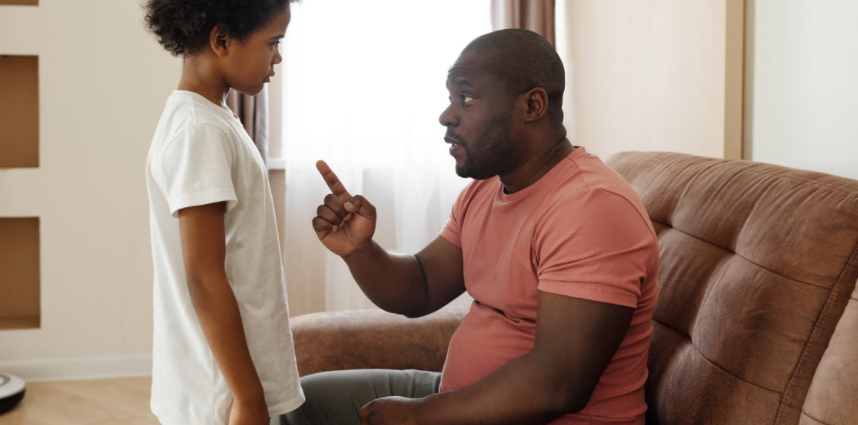|
|
Children learn at an early age to be aggressive when it pays to be. Children whose aggression successfully intimidates other children may become even more aggressive.
Parents can be the driving factor behind whether a child grows up to be aggressive by the way they discipline them. A child’s self-esteem is also affected by receiving physical punishment and the withholding of love. It doesn’t take a Ph.D. to understand this. What messages do children receive if a parent beats them or tells them they are unworthy of love? Particularly harsh or severe physical punishment are also associated with a child’s fear and even hatred of his parents. Children also lose a portion of their natural spontaneity and warmth.
Simple Spanking or Harsh Parenting?
Most children show no long-term damage from simple spankings, especially if spanking is backed up by supportive parenting (Baumrind, Larzelere & Cowan, 2002). However emotional damage does occur if spankings are severe, frequent, or coupled with harsh parenting. In addition, frequent spanking tends to increase aggression and thus leads to more problems, not fewer (McLoyd & Smith, 2002).
In addition to incorrect physical punishment, inconsistent discipline gives a child less security and stability. Inconsistency makes a child’s world insecure and unpredictable.
Mistakes to Avoid
Let’s consider a few examples of inconsistency (Fontenelle, 1989). The following are mistakes to avoid:
- Saying one thing and doing something else. For example, you tell your child if they don’t eat their brussels sprouts they can’t have any dessert. Then you feel guilty and give him dessert anyway.
- Making statements that you don’t mean. Saying to your loud child in the car, if you don’t quiet down I’m going to stop the car and make you walk home.
- Changing NO to YES, especially to quiet a screaming child. Refusing to buy the child a toy, but later you give in and buy it anyway.
- Responding differently to the same behavior. One day a child is punished or sent to his room for fighting with his sister, the next day, the same fighting is overlooked.
- Inconsistency, like severe physical punishment, makes children feel angry and confused because they cannot control the consequences of their own behavior. It also gives children the message they shouldn’t believe what you say because you usually don’t mean it. And what messages do children learn from this?
When to Use Physical Punishment
Most parents use power assertion, withdrawal of love, or management techniques to control children. However, physical punishment and withydrawal of love should always be used with caution. In fact, many psychologists believe that children should never be spanked. Or, at most, reserved for situations that pose a serious danger to younger children, like running into the street or playing with matches. And, always be consistent with respect to child discpline. Have the child’s self-esteem always in mind.
Damaged self-esteem is difficult to recognize and even harder to fix.
Learn about The Unloved Child and Early Parenting.
This report is not a diagnosis. We hope this information can guide you toward improving your life.
Review our Knowledge Base or the links displayed on this page for similar and related topics.

